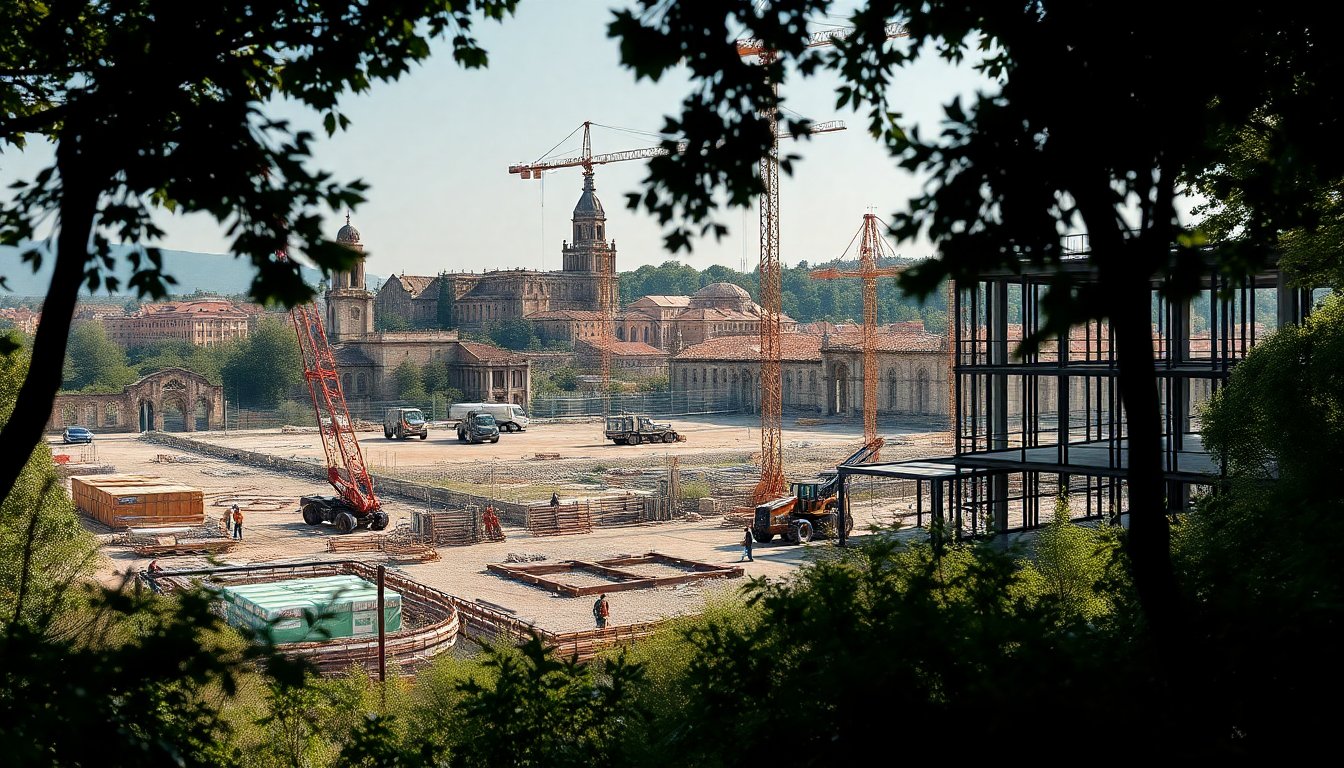Table of Contents
In a significant political development, the Serbian parliament has endorsed a luxury hotel project linked to Jared Kushner, the son-in-law of former U.S. President Donald Trump. This decision has sparked intense debate, especially given the project’s location on a site of considerable historical importance. Critics contend that this initiative exemplifies a troubling trend of prioritizing economic benefits over cultural heritage.
The proposed Trump-branded hotel is planned at the site of the former Yugoslav Army headquarters, which has remained dilapidated since its destruction during NATO’s 1999 bombing campaign aimed at addressing the Kosovo conflict. This historically significant landmark is often regarded as a memorial, and its redevelopment raises critical questions about Serbia’s dedication to preserving its history.
The background of the development
This ambitious project, valued at approximately $500 million, faced initial delays due to corruption allegations involving officials associated with it. However, the ruling Serbian Progressive Party, headed by President Aleksandar Vučić, has expedited the necessary legislation to advance the project. By invoking a constitutional provision, the government has categorized the hotel development as a matter of national interest, thereby bypassing existing cultural protections for the site.
Controversial legislative actions
On November 4, lawmakers convened to discuss this contentious proposal, ultimately passing a special law that permits expedited processes for the project’s implementation. This decision has drawn significant criticism from opposition lawmakers and civil society groups, who argue that the government is jeopardizing Serbia’s historical legacy for political favor with the Trump administration.
Marinika Tepić, a center-left MP, expressed strong disapproval, suggesting that the government’s actions equate to sacrificing Serbia’s rich history to placate Donald Trump. She remarked, “In a place where bombs once fell, you now plan to pour champagne,” highlighting the emotional significance of the site.
Reactions from various stakeholders
Supporters of the project, including President Vučić, claim that the hotel will strengthen Serbia’s ties with the United States and establish Belgrade as a vital player in the region’s economic landscape. Vučić asserts that the development is crucial for attracting international corporations and educational institutions, which would stimulate growth in the capital.
Additionally, Kushner’s firm, Affinity Partners, has obtained a long-term lease from the Serbian government to initiate this project, with plans for further developments in the Balkans, including a luxury resort in Albania. These initiatives reflect Kushner’s broader strategy to expand his real estate portfolio on an international scale.
Public outcry and preservation efforts
Despite governmental backing, a diverse array of voices in Serbia opposes the redevelopment. Heritage experts and activists are advocating for the site’s preservation as a cultural monument. They argue that the former army headquarters, with its distinctive architectural design, should remain a testament to the nation’s past.
In response to these concerns, the site has been recognized by Europa Nostra, Europe’s largest heritage protection organization, as one of the continent’s most endangered cultural sites. Activists warn that demolishing it would set a dangerous precedent, potentially undermining cultural protections throughout the country.
A pivotal moment for Serbia
The passage of this law and the approval of the hotel project represent a pivotal moment for Serbia, illustrating the ongoing conflict between development and historical preservation. As protests persist and public discourse evolves, the implications of this decision are likely to resonate throughout the region, influencing Serbia’s identity and relationship with its history for years to come.
The proposed Trump-branded hotel is planned at the site of the former Yugoslav Army headquarters, which has remained dilapidated since its destruction during NATO’s 1999 bombing campaign aimed at addressing the Kosovo conflict. This historically significant landmark is often regarded as a memorial, and its redevelopment raises critical questions about Serbia’s dedication to preserving its history.0


